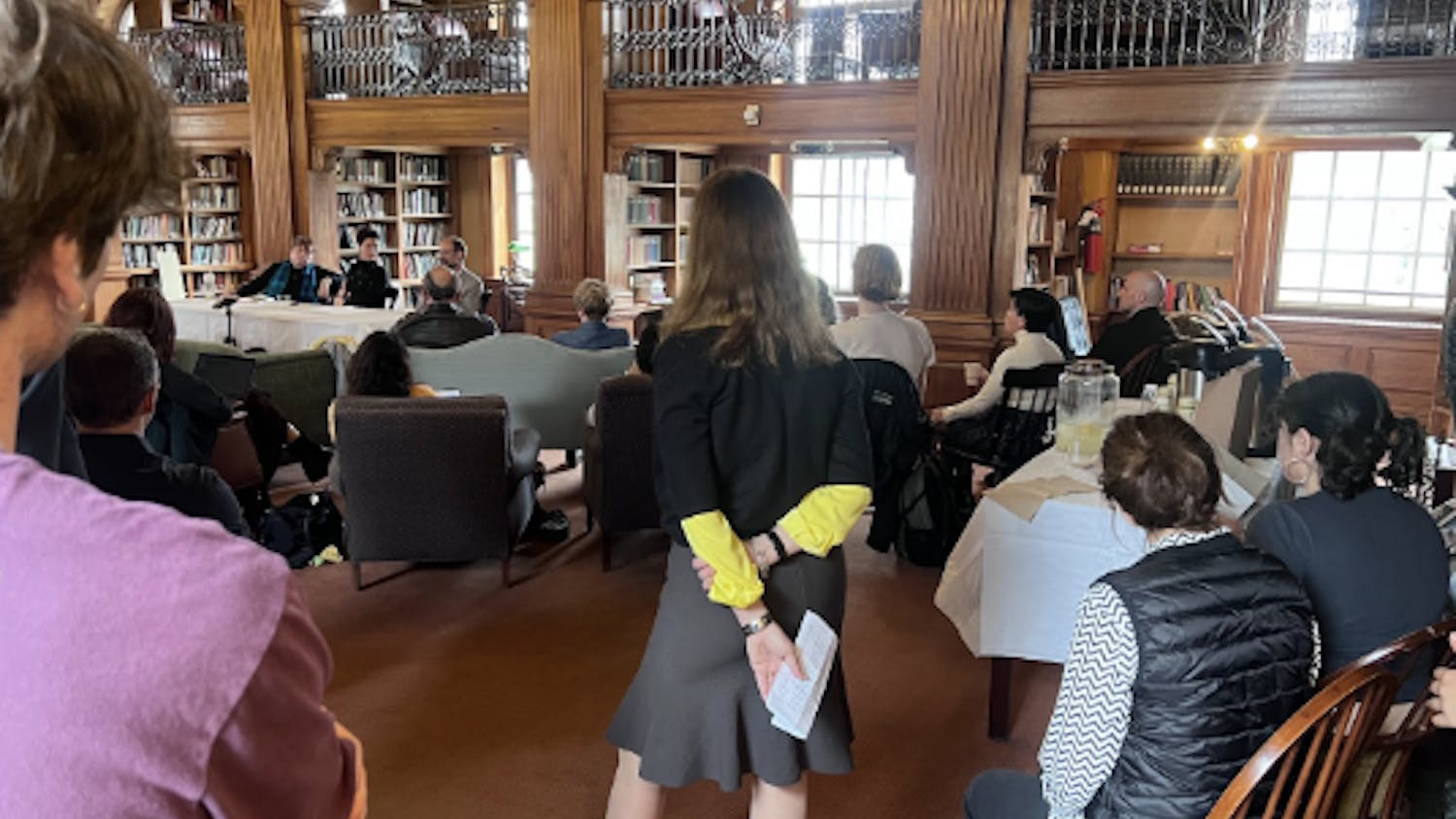I will freely admit that I have an obsessive personality, so it may not surprise anyone that I spent approximately 39 hours over break cultivating a new obsession: Fox's critically acclaimed sci-fi series "Fringe." Over the course of a week and a half, I watched all 52 episodes from the show's first, second and third seasons in preparation for the series' return from hiatus on Friday, Jan. 21 at 9 p.m.
At its heart, "Fringe" is your average television procedural, chronicling investigations conducted by the FBI's "Fringe Division Science Team." Together, head agent Olivia Dunham, a brilliant but eccentric biochemist named Walter Bishop and Bishop's multitalented son Peter search for explanations to disturbing supernatural occurrences (think: melting faces, giant slug-sized versions of a cold virus and a bus of people fossilized in amber). These events which the show refers to as "The Pattern" are linked to the existence of a mysterious alternate universe that seems determined to destroy our reality. Delightful suspense and cliffhangers ensue.
However, the point of this column is not to tell you to watch "Fringe." (But you should Fox's decision to move "Fringe" to Friday nights from its previous time slot on Thursday suggests it might be in danger of cancellation, so the show could benefit from a few more viewers). Instead, I want to share with you an important lesson in television watching that I learned from my experience with this show.
Up until relatively recently, it was a lot more difficult to watch an entire series in one extended sitting at a reasonable cost. Today, however, binge TV watching is a common practice. Virtually every episode of almost every series imaginable is available online either at a reasonable monthly fee through subscription viewing services like Netflix or Hulu Plus, or for free using illegal streaming websites, not to mention DVRs, OnDemand, BitTorrent you get the point.
I devoured "Fringe" through a combination of these methods. Instead of waiting a week between episodes or months between seasons, I barely waited for the credits to start rolling before I clicked over to the next installment. Instant gratification. But I soon realized that in condensing the series, I had destroyed one of the distinguishing characteristics of television.
In an article about geek culture in this month's Wired, comedian Patton Oswalt addresses the problems that come from the instant availability of all types of media. He terms this phenomenon "Etewaf," short for "everything that ever was available forever." As society approaches Etewaf, he argues, the mode of consumption changes.
The periods of waiting between the television episodes of yore, according to Oswalt, produced an (admittedly smaller) group of intensely dedicated fans who tolerated cliffhangers by watching, rewatching and dissecting their videotaped copies of each episode. The current trend towards Etewaf, however, enables shows to attract wider but less dedicated fan bases. Today's consumers may seem devoted to their chosen shows, but their knowledge of the shows' details can't match the expertise of their predecessors. In the end, Oswalt writes, "Etewaf doesn't produce a new generation of artists just an army of sated consumers."
So after I binged on "Fringe," I felt like I had a TV hangover. Even though I enjoyed it while it lasted, I woke up with a fuzzy knowledge of what I had just experienced and a nagging inkling of regret. Instead of taking the time to appreciate the show like a fine wine, I had domed myself on it.
Etewaf has contributed to another deceptively dangerous new trend: the practice of reading other viewers' opinions in reviews, boards and blogs rather than formulating your own. For me, going online to read about my favorite shows is as integral a part of experiencing television as sitting down to watch an episode. But doing so, especially in combination with binge watching, sometimes prevents me from engaging with a show and risks devaluing the entire experience.
But all is not lost. Thankfully, it's the new year, so I get to make some resolutions. This year, I'm vowing to stop binge watching and to explore my own relationship with the shows I love and maybe even some of the shows I hate. I hope you'll join me here to do the same.



